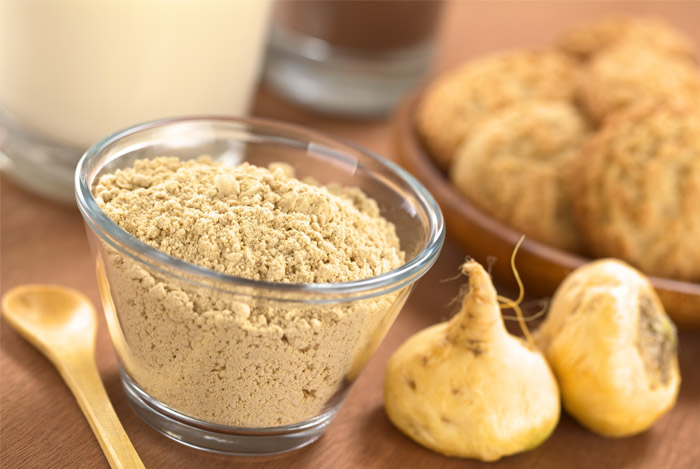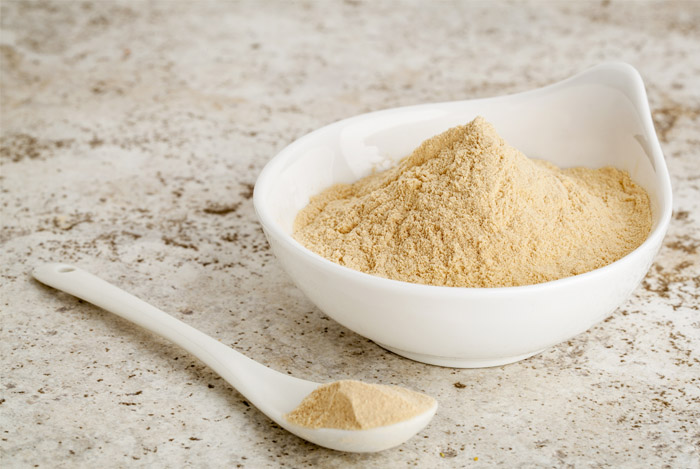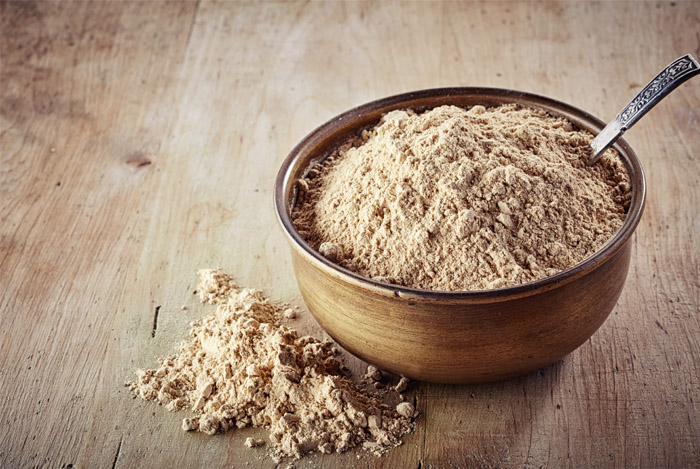I understand the frustration a lot of people have with modern medicine. Especially when it seems like the pharmaceutical industry is more interested in the treatment, not the cure.
The medicine itself can also be incredibly costly, especially in the United States, where medical bills are the biggest cause of bankruptcies.
So, when confronted with the daunting prospect of paying for professional medical treatment, it’s perfectly reasonable for you to wonder if there are other options available to you. This plays a major factor in why people often turn to traditional or alternative medicines, which have been used by ancient peoples for generations.
Of course, there are all sorts of other reasons. Maybe you simply don’t trust doctors, don’t want to wait for the scientific evidence, or you’re at your wit’s (and health’s) end, ready to try anything.
If you’re in the market for a natural supplement that’s growing in popularity, maca root may be the ideal choice for you. Those who swear by it claim it has a load of health benefits and point to its history for proof.
After all, it was used in Peru for 3,000 years. Something had to have been working right, don’t you think?
So let’s look into maca, its history, and its supposed benefits. And let’s see how much science there is backing up this amazing Peruvian root.
The Story of Maca
 Maca, also known as Peruvian ginseng, was first used by the people living near and among the Andes Mountains of South America because of its significant nutritional value. It was also popular because they believed it helped fertility and performance between the sheets.
Maca, also known as Peruvian ginseng, was first used by the people living near and among the Andes Mountains of South America because of its significant nutritional value. It was also popular because they believed it helped fertility and performance between the sheets.
But that’s not all it was used for. Some ancient Peruvian medicinal traditions used maca for menstrual disorders, memory enhancement, stress reduction, migraine headache relief, overall immune function improvement, anemia, mental sharpness, tuberculosis, and even stomach cancer.
Cultivated as a food crop in South America, the powders and extracts are derived from the root of the plant, called a hypocotyl. It’s mainly found in the rest of the world dried or in powdered form as it doesn’t grow in all climates.
Now, maca is one of the top 10 products exported from Peru, increasing in popularity a reported six times in the past decade alone. The rest of the world seems to be convinced, or at least very interested, in the purported benefits of this mountain root.
1. Rich in Vitamins and Nutrients
 If you’re looking for another way to benefit your overall health, maca could be a great addition to an already well-balanced and healthy diet.
If you’re looking for another way to benefit your overall health, maca could be a great addition to an already well-balanced and healthy diet.
Some of the best nutritional benefits maca has to offer are found in the form of micronutrients. Micronutrients are compounds essential for the body in small amounts, helping to produce the enzymes and hormones needed for it to function properly.
The micronutrients found in maca are iodine, iron, manganese, and zinc.
Why are these micronutrients so important?
- Iron is used by the cells for oxygen transport, and encouraging growth.
- Iodine is essential for the thyroid to function properly, and helps strengthen the metabolism.
- Manganese is used by the body for creating connective tissue, building bone, forming blood clots, and encouraging the production of sex hormones.
- Zinc plays an integral factor in the function of around 100 different enzymes, which serve to boost the immune system, and aid in the synthesis of protein.
Also found in maca are the minerals calcium and potassium, and the very important vitamin C and B vitamins. All of these are crucial for your cells, your muscles, and your immune system, respectively.
Obviously, a serving of maca now and then is guaranteed to provide your body with at least a small boost thanks to these healthy components.
2. Improve Your Sex Life
 The ancient Incan culture used the Maca herb for many medicinal purposes, but it’s most known today for its effect on enhancing the sex drive.
The ancient Incan culture used the Maca herb for many medicinal purposes, but it’s most known today for its effect on enhancing the sex drive.
As infertility becomes an increasingly more frustrating and common issue in men and women today, people are looking for any and all solutions to help increase their libido and their chances of a little bundle of joy.
Because of its acclaimed ability to increase hormone production in the pituitary gland, maca has been traditionally used as a fertility enhancer for females and has drawn the attention of medical researchers as well as alternative medicine practitioners.
Maca has also been the subject of a study revolving around substances that benefit sexual desire, mood, sperm motility, and semen volume in men. The study demonstrated slight favorable results.
While more studies need to be done to prove the sexual health benefits of maca, so far the science has yet to come back with negative or contradictory results. In other words, if you’re suffering from these problems, maca is worth trying.
3. Better Prostate Health
 Prostate cancer is one of the most major health issues for men in the world today. In 2014 the American Cancer Society predicted an unbelievable 233,000 new cases of prostate cancer would be diagnosed, as well as nearly 30,000 deaths from the condition.
Prostate cancer is one of the most major health issues for men in the world today. In 2014 the American Cancer Society predicted an unbelievable 233,000 new cases of prostate cancer would be diagnosed, as well as nearly 30,000 deaths from the condition.
Recently, scientists have put considerable efforts into studying the potential for maca to be used in promoting prostate health.
Because of its high levels of glucosinolates, known to have anticancer properties, maca may be more effective in fighting against prostate and other cancers than its cousins of the cruciferous family.
This is especially the case with red maca, one of the 13 known varieties of maca. Red maca seems best in reducing the size of enlarged prostates and combating benign prostatic hyperplasia. Red maca also contains higher levels of phytonutrients including alkaloids, saponis, steroids, and tannins.
4. Reduce Menopause Symptoms
 Maca is thought to help women by reducing the chaotic body chemistry they suffer during menopause. It does so by apparently encouraging the adrenal glands to stabilize the quickly diminishing hormones of the thyroid and pancreas.
Maca is thought to help women by reducing the chaotic body chemistry they suffer during menopause. It does so by apparently encouraging the adrenal glands to stabilize the quickly diminishing hormones of the thyroid and pancreas.
Natural News tells the story of a woman suffering from polycystic ovary syndrome (PCOS), who had not menstruated for eight months. She finally returned to a normal cycle after trying maca powder to regulate her cycle and balance her hormones. She credits maca with her return to normalcy.
While this is more in the camp of anecdotal evidence, sometimes that’s all people need to be convinced of a supplement’s health benefits.
In 2010, researchers performed a thorough review of the studies on maca and its effects on menopause. There were four key clinical trials they analyzed, and each concluded that maca demonstrated benefits for women going through menopause.
Unfortunately, the researchers soon realized that each of these four studies was at best inconclusive, and at worst misleading.
So, while it seems many people swear by its efficacy, the science is still out on this point. Studies that have indicated its benefits for menopause haven’t been up to the rigorous standards the scientific community applies to medicines for women’s health issues.
5. Increase Athletic Performance
 The workout and weight loss communities are always looking for the next best supplement to increase their endurance and strengthen their performance. Maca has definitely been getting some attention.
The workout and weight loss communities are always looking for the next best supplement to increase their endurance and strengthen their performance. Maca has definitely been getting some attention.
Maca has the proteins, amino acids, vitamins, and minerals athletes look for in a supplement, as well as some antioxidant effects that help prevent soreness after tough workouts. Its effects on mood could also provide motivation for exercise.
According to Muscle-Health-Fitness, which claims to be a “Science-Based Nutrition, Training and Health Resource”, users of maca root have had some significant results almost immediately.
The site says: “These increases in stamina may be a product of the more stable blood sugar levels maca produces coupled with the strengthening effect it has on the adrenals”.
They also suggest it could be responsible for improved strength, saying: “Maca was used by troops in the Tahuantinsuyo Empire before battle as a strength aid!”
So what does the research show?
A study was performed on eight participants completing a 40 km cycling time trial after 14 days supplementation with maca extract and placebo. They also completed a sexual desire inventory.
The researchers found that maca extract “improved 40 km cycling time trial performance and sexual desire in trained male cyclists”.
They concluded by saying: “These promising results encourage long-term clinical studies involving more volunteers, to further evaluate the efficacy of [maca extract] in athletes and normal individuals and also to explore its possible mechanisms of action”.
WebMD lists maca as having “Insufficient Evidence” for improving energy and athletic performance. So, more research is still needed to determine whether or not every athlete should be taking this stuff.
6. Fight Bone Loss
 Postmenopausal women often face bone deterioration, or osteoporosis, as a result of estrogen deficiency. A study performed on four groups of rats tested the effects of maca extract in preventing this bone loss and found it to be effective.
Postmenopausal women often face bone deterioration, or osteoporosis, as a result of estrogen deficiency. A study performed on four groups of rats tested the effects of maca extract in preventing this bone loss and found it to be effective.
This may be because the components in maca function to normalize the endocrine system, balancing hormones and increasing the secretion of estrogen. It also has fairly high calcium content. Together, these factors are assumed effective in treating osteoporosis.
A study published in the International Journal of Biomedical Science on the effects of maca on women’s health found the women taking maca had a notable increase in bone density.
Viana Muller, PhD, has been studying maca and other herbal remedies from Peru since 1989. The website Regenerative Nutrition, discussing her work, said: “In order to evaluate the effectiveness of helping to reverse osteoporosis, a baseline hormone level should be established before starting maca therapy”.
So, before taking maca supplements to fight osteoporosis, you should definitely consult with your physician, and probably ask for a referral to an endocrinologist.
7. Fight Depression

The World Health Organization (WHO) has estimated that around 350 million people around the world suffer from depression.
A study performed on mice who had ovariectomies used three kinds of maca root, yellow, red, and black, to try and increase cognitive function and fight depression. The mice were divided into four groups and were treated over the course of 21 days.
They concluded that black maca appeared to have the most beneficial effects, but that all varieties of maca showed antidepressant activity.
A 2008 study in Australia observed two groups of women for 12 weeks. One group was given 3.5 grams of maca powder each day, while the other was given a placebo. At the end of the 12 weeks, the researchers reported a “significant reduction in scores in the areas of psychological symptoms, including the subscales for anxiety and depression and sexual dysfunction after maca consumption”.
So, if you’re feeling depressed and want to incorporate a supplement into your routine that could have mood altering benefits, maybe you should give maca a chance.
Conclusion
 Maca is a substance with a lot of history and a potentially promising future. As long as interest in its use as a supplement continues to grow, more studies will be performed and hopefully more data will be collected to support its benefits. Until then, people will surely use it, thanks to its label as a wholesome, natural product.
Maca is a substance with a lot of history and a potentially promising future. As long as interest in its use as a supplement continues to grow, more studies will be performed and hopefully more data will be collected to support its benefits. Until then, people will surely use it, thanks to its label as a wholesome, natural product.
Remember, though, that just because something comes from a plant doesn’t mean it’s good for you. It’s really important to note the lack of any scientific consensus on whether maca, or lots of other natural supplements for that matter, have any real benefit whatsoever.
Maca is really fascinating for its role in the health of indigenous communities of the Andes mountain range, but its application to modern day medicine is anything but certain. Just because people have been using it for centuries doesn’t mean it will work for you.
Talk to your doctor before you take maca or anything else not prescribed for you. You may be one of the cases that reports amazing benefits, but it’s always best to be careful with your health.
Have you tried this amazing Peruvian root? Comment below with your story.
The post 7 Health Benefits of Maca – the Amazing Peruvian Root appeared first on Nutrition Secrets.
http://www.nutritionsecrets.com/health-benefits-of-maca/
No comments:
Post a Comment